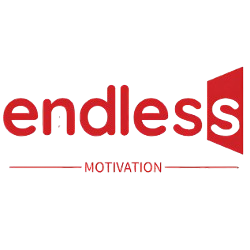We are drowning in words. We consume enough information every day to fill 174 newspapers. Our brains are constantly filtering, sorting, and struggling to find signal in the noise. Yet, amidst this torrent of content, the most profound truths often arrive in the smallest packages. A single, perfectly crafted sentence of seven words or less can cut through the chaos with surgical precision, landing in your soul with the force of a tidal wave.
This is the power of the short quote. It is not merely a saying; it is a cognitive tool, a psychological lever, and a spiritual compass. In a world of complexity, it offers crystalline clarity. In moments of overwhelm, it provides an anchor. In periods of doubt, it becomes a battle cry.
This is not just another collection of inspirational phrases. This is a deep exploration into the mechanics of how and why these condensed wisdom-bombs work, complete with a actionable system for harnessing their transformative power. We will explore the neuroscience, curate an extensive categorized collection, and provide a practical framework for making these quotes a living, breathing part of your daily existence.
Part 1: The Neurological Alchemy of Brevity – Why Fewer Words Create Deeper Impact
To understand the power of short quotes, we must first look under the hood of the human brain. Their effectiveness is not accidental; it’s biological.
The Cognitive Sweet Spot
The working memory of the human brain—the mental “scratch pad”—can hold only about 7 (±2) items at once. This is known as Miller’s Law. A powerful short quote fits perfectly within this cognitive sweet spot. It doesn’t overload the system. It’s easily grasped, processed, and stored, unlike a complex paragraph that requires dissection and analysis.
The “Aha!” Amplifier
When a concise quote encapsulates a vast truth, it creates a moment of cognitive ease and insight. This “Aha!” moment triggers a release of dopamine in the brain’s reward center. You don’t just understand the quote; you feel its truth. This neurochemical reward makes the quote sticky, memorable, and something your brain wants to return to.
The Mantra Effect and Neuroplasticity
Repetition is the language of the brain. When you repeat a short, powerful phrase—”I am enough,” “Progress over perfection,” “This too shall pass”—you are actively carving new neural pathways. This is the principle of neuroplasticity. The quote becomes a mental habit, a default setting that gradually overwrites old, unhelpful patterns of thought. It’s a conscious reprogramming of your inner dialogue.
Part 2: The Arsenal – A Tactical Field Guide to Quotes for Every Life Situation
Think of this not as a list, but as a toolkit. Different tools for different jobs. Here are over 150 powerful short quotes, organized for strategic application.
Module 1: Mindset Resets (The Cognitive Toolkit)
For when your thinking is stuck in a loop and you need a new perspective.
- The obstacle is the way.
- Perception is reality.
- Mind over matter.
- This is water. (David Foster Wallace)
- Be here now.
- Your thoughts create your reality.
- What you focus on expands.
- Energy flows where attention goes.
- Change your thoughts, change your life.
- Question your assumptions.
Module 2: Emotional First-Aid (The Affective Toolkit)
For moments of high emotion, stress, anxiety, or sadness.
- This too shall pass.
- Feel it to heal it.
- Inhale courage, exhale fear.
- You are the sky. Everything else is weather.
- Let go or be dragged.
- And so it goes.
- No rain, no flowers.
- Breathe. It’s just a bad day.
- Soften into the feeling.
- This is a wave. Ride it.
Module 3: Motivation & Action (The Behavioral Toolkit)
For combating procrastination, igniting drive, and building momentum.
- Just do it.
- Action cures fear.
- Done is better than perfect.
- Start before you’re ready.
- Show up, every single day.
- One percent better.
- Small steps, big wins.
- The way out is through.
- Do the hard thing.
- Momentum creates momentum.
Module 4: Resilience & Grit (The Endurance Toolkit)
For when you’re facing adversity, failure, or exhaustion.
- Fall seven, rise eight.
- Smooth seas don’t make good sailors.
- Still I rise. (Maya Angelou)
- Pressure makes diamonds.
- Stay in the fight.
- This won’t break me.
- I am stubbornness made flesh.
- Endure. Adapt. Overcome.
- One more step.
- I can do hard things.
Module 5: Wisdom & Perspective (The Philosophical Toolkit)
For zooming out and seeing the bigger picture.
- Memento mori. (Remember you will die.)
- Amor fati. (Love your fate.)
- Know thyself.
- The only constant is change.
- Simplicity is the ultimate sophistication.
- Everything is figureoutable. (Marie Forleo)
- The journey is the reward.
- Less judgment, more curiosity.
- Pay attention.
- Wonder is the beginning of wisdom.
Module 6: Connection & Relationships (The Social Toolkit)
For navigating the complex world of human interaction.
- Listen to understand, not reply.
- Assume good intent.
- Be kind, for everyone is fighting a hard battle.
- Connection before correction.
- People will forget what you said, but not how you made them feel.
- Your vibe attracts your tribe.
- Boundaries are a form of love.
- No is a complete sentence.
- Seek first to understand.
- Love is a verb.
Part 3: The Integration Protocol – From Passive Reading to Active Living
Knowing quotes is one thing; living them is another. This is a practical, 4-phase system for weaving these powerful phrases into the fabric of your daily life.
Phase 1: Diagnosis & Selection
Before choosing a quote, diagnose your current mental or emotional state.
- Ask: What is the dominant challenge I’m facing right now? Is it procrastination? Anxiety? Self-doubt? A difficult relationship?
- Action: Go to the relevant “Module” above and select one quote that feels like a direct antidote to your current struggle. Do not select more than one. Focus is key.
Phase 2: Contextualization & Personalization
A quote is generic until you make it personal. For your chosen quote, complete this sentence:
- “For me, ‘[Your Quote]’ means…”
- Example: For “The obstacle is the way,” you might write: “For me, ‘The obstacle is the way’ means that the difficulty I’m having with this client isn’t a distraction from my work; it is the work. Overcoming it will make me better at my job.”
Phase 3: Environmental Design & Repetition
Make the quote unavoidable. Your environment will shape your behavior.
- Primary Placement: Put the quote in the exact location where you need it most.
- Struggling with morning motivation? -> On your bathroom mirror.
- Afternoon energy slump? -> As your computer’s screensaver.
- Pre-meeting anxiety? -> On the first page of your notebook.
- The Repetition Ritual: Commit to saying the quote out loud or writing it down a specific number of times per day (e.g., 3 times in the morning, 3 times at night). This is not mindless repetition; it’s conscious reinforcement.
Phase 4: Action & Embodiment
This is the most critical phase. A quote must be acted upon to become real.
- Ask: “What is one small, concrete action I can take today to embody this quote?”
- Example for “Done is better than perfect”: “I will send the first draft of the report without spending two more hours tweaking the formatting.”
- Example for “Be here now”: “I will leave my phone in another room during dinner and focus entirely on the conversation.”
Part 4: Advanced Applications – Beyond Personal Development
The power of short quotes extends far into professional and creative domains.
For Leadership and Teams
A well-chosen quote can define culture and strategy more effectively than a 50-page manual.
- Strategic Anchor: Use a quote like “Clear eyes, full hearts, can’t lose” to anchor a team’s mission.
- Meeting Starter: Begin a meeting by having everyone reflect on a quote like “Seek first to understand” to set a collaborative tone.
For Creative Work
Break through creative blocks and maintain inspiration.
- Creative Mantras: “Make good art.” (Neil Gaiman) or “Create like a god, command like a king, work like a slave.” (Constantin Brâncuși)
- Focus Filters: “Kill your darlings” for editing, or “Show, don’t tell” for writing.
For Habit Formation
Pair a quote with a new habit you’re trying to build.
- Habit: Morning run. Quote: “The body achieves what the mind believes.”
- Habit: Learning a new skill. Quote: “The expert in anything was once a beginner.”
Conclusion: Your Invitation to the 7-Word Revolution
We have journeyed through the science, assembled the tools, and outlined the strategy. The power now rests with you. The 7-word revolution is not about adding more to your life; it’s about subtracting the noise and focusing on the essential. It’s about finding the few words that can carry you through the many challenges.
This is an invitation to move from consumption to application. Don’t just read these quotes. Don’t just bookmark this page. That is the old way.
The new way is this:
- Choose one. Just one quote from this entire guide that vibrates with your current reality.
- Install it. Use the Integration Protocol. Make it your phone background. Write it on your hand. Say it until it becomes a part of you.
- Live it. Let it dictate your next action. Let it be the filter for your next decision.
A single, powerful quote, fully embodied, is worth more than a thousand passively read. It becomes a part of your operating system. It is the whisper that becomes a roar, the nudge that becomes a leap, the thought that becomes a destiny.
The revolution starts with seven words. What will yours be?
Your Mission: In the comments, share the one quote you have chosen from this guide and one small action you will take today to live it. Let’s build a living library of applied wisdom.

